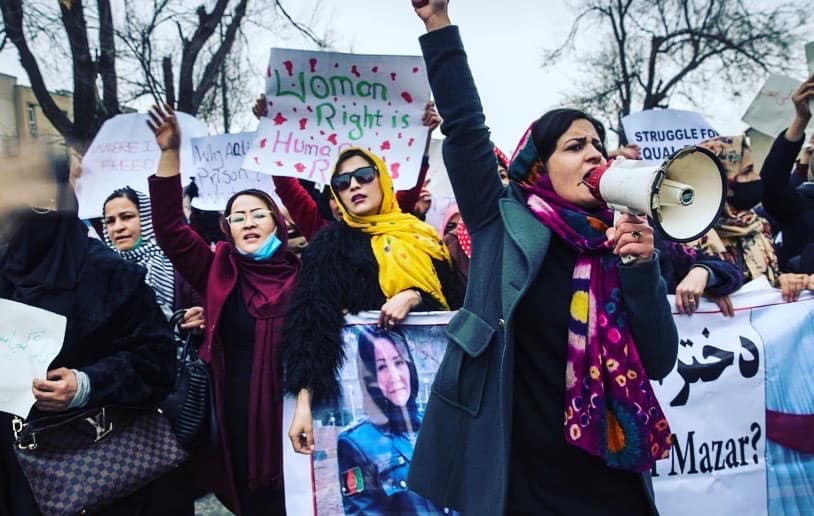Taliban restrictions on Afghan women have dramatically impacted their lives, limiting their ability to work, learn, and move freely. When the Taliban imposed these restrictions, many women in Kabul and other cities protested for “food, work, freedom.”
Violent Repression of Protests
Zakia’s life fell apart when the Taliban took over Kabul on August 15, 2021. As the primary breadwinner, she lost her job. In December 2022, she joined a protest, her first chance to express anger over the restrictions. Protesters marched to Kabul University but were stopped. Zakia faced a gun pointed at her mouth. Fellow protesters were forced into vehicles. Zakia resisted but escaped, terrified by the public violence.
Harrowing Accounts of Detention
Mariam, a widow and sole provider, protested in December 2022. She was forcefully pulled from a taxi, searched, and beaten when she refused to give her phone passcode. Mariam faced harsh treatment, including being handcuffed, bagged, and insulted. Parwana, a 23-year-old student, was arrested a month later. She endured torture, was slapped, and threatened with a gun. Her meals in jail were inedible, with nails and stones found in the food. Parwana was jailed for a month, accused of promoting immorality.
Forced Confessions and Release
Both Mariam and Parwana were eventually released due to human rights groups’ interventions. They were forced to sign confessions and their families pledged the women wouldn’t protest again. Taliban spokesman Zabihullah Mujahid denied the torture claims, stating arrested women threatened public safety. He insisted no beatings occurred in Taliban prisons, and food was medically approved.
Human Rights Organizations’ Findings
Human Rights Watch confirmed the protesters’ accounts, noting the Taliban used various tortures and imprisoned families under harsh conditions. Amnesty International reported prisons lacked basic facilities, with inadequate food and no heating.
Impact on Women’s Lives
Despite promises to allow women to work and study within Sharia law, the Taliban has not reopened girls’ secondary schools. Zakia attempted to run a home tuition center for young girls, but this too was shut down. She now feels like a prisoner in her own home, meeting fellow activists but avoiding public protests.
The Struggle for Basic Rights
The Taliban restrictions on Afghan women have removed them from public life, leaving them without basic rights. Zakia’s voice breaks with sadness as she reflects on their struggle. “All we wanted was our basic rights. Was it too much to ask?” she says, highlighting the profound impact of these oppressive rules.


